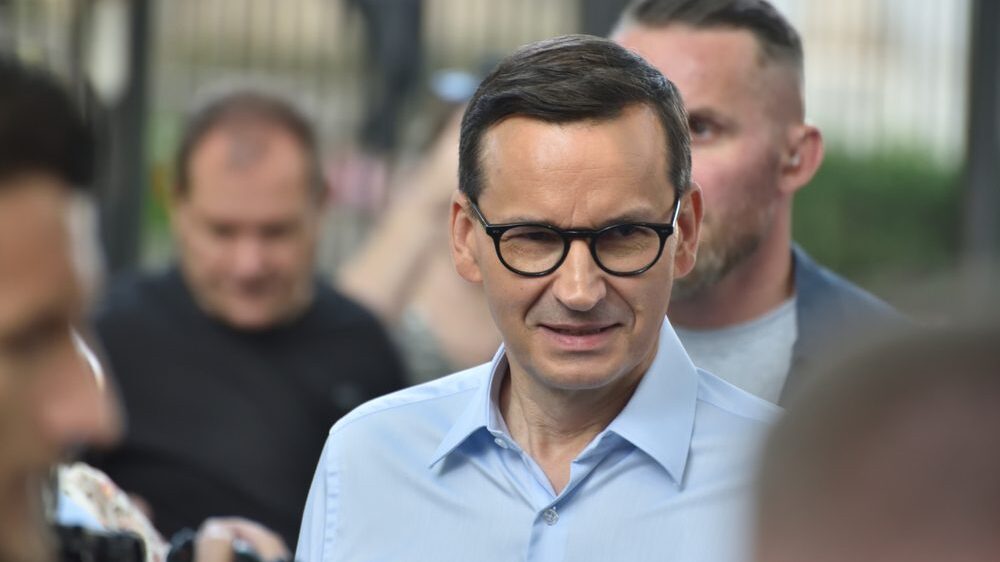
Polish Prime Minister Mateusz Morawiecki of the PiS party.
Photo: ezp / Shutterstock.com
Poland’s ruling Law and Justice (PiS) party is toning down its rhetorical support for Ukraine on the campaign trail, as Poland prepares for hotly-anticipated national elections rumoured to be called for October 15th.
According to leaked messages obtained by the Polish press, PiS officials are now instructing their representatives to mitigate public support for Ukraine because “social emotions have changed.” They have even authorised them to publically criticise the Ukrainian government for the first time.
Motivated by geopolitical factors and historical animosity towards Russia, Poland has been one of the EU’s most vociferous defenders of Kyiv against the Russian invasion, having accepted over a million refugees and channelled billions into military aid for the embattled Zelensky government.
The PiS’s shift is likely motivated by the sudden electoral rise of the right-wing populist Konfederacja (Confederation) Party, which takes a critical stance on Poland’s unwavering support for Ukraine and has spiked to become the country’s third most popular party, polling at 14%.
PiS officials worry that Konfederacja’s surge, which primarily draws support from young and rural voters, could challenge their longstanding dominance of the Polish Right, as the ruling party faces challenges from both the European Commission and liberal opposition in the ongoing election cycle.
Radosław Fogiel, a PiS MP, admitted to the press that while relations between Ukraine and Poland were experiencing turbulence, Konfederacja would likely prefer to mimic Hungary’s Orbán regarding the Ukrainian war and pursue détente with Moscow.
Originally founded as an electoral alliance for the 2019 European elections before becoming a formal political party, Konfederacja has made a name for itself by criticising PiS on foreign policy and for being lax on immigration. This backlash forced the PiS to retire plans to liberalise Poland’s visa process with the Global South.
The economic impact of excess Ukrainian grain on Polish farmers, as well as the long-term logistics of integrating Ukraine into the EU is also potentially weighing on the PiS’s decision to authorise a more sceptical line regarding the war.
The Polish government adopted a controversial Russian-influence law this week which some have labelled a subtle way of discrediting opposition parties and groups as Warsaw potentially faces yet another bout of weaponised migration on its eastern border with Belarus.
